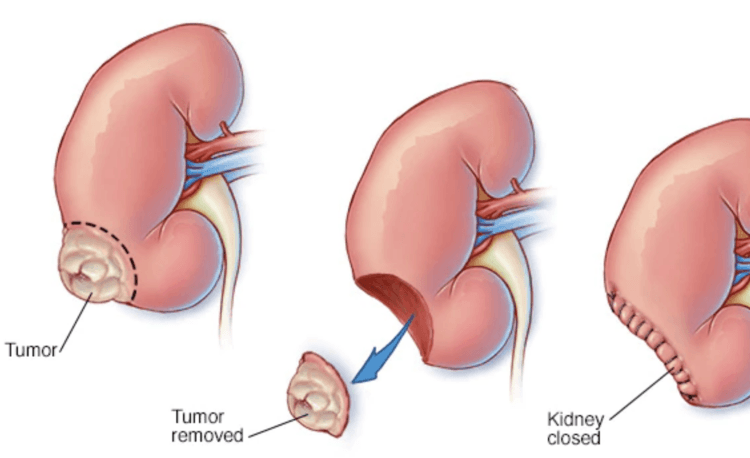Nephrectomy in Wiesbaden
Search and Compare the Best Clinics and Doctors at the Lowest Prices for Nephrectomy in Wiesbaden

Find the best clinics for Nephrectomy in Wiesbaden
With Medijump you can browse 2 facilities offering Nephrectomy procedures in Wiesbaden. The cheapest price available is $1,628 in Berlin. And for the cheapest price globally, prices start from $1,228 in Morocco.
Nephrectomy in Germany
Price: $ 1,628
Nephrectomy in Berlin
Price: $ 1,628
Morocco offers the best prices Worldwide
Price: $ 1,228
From 2 verified reviews
Büsra Erdogan, 10 August 2019
We were at 19h tonight at the Children's Hospital are just 23h back home, without my child could be treated for 9 months with 39.5 degrees Fever. It simply can not be that there is a single doctor in the emergency service for all of Wiesbaden and the children's hospital is full of chatter. There were 3 patients with the ambulance, in the waiting room were min. 10 more were waiting, treatment rooms all full, but wait in the rooms already 2 hours, is the normal? It was said there is support to a senior physician who did not come because he had to emergency surgery. But hello, are there no doctors anymore or what's up? Why save on staff when the need is so great? Where do we live, this is no longer the case in this country!
HELIOS DKD Hospital Wiesbaden, located in Aukammallee, Wiesbaden, Germany offers patients Nephrectomy procedures among its total of 156 available procedures, across 22 different specialties. Currently, there's no pricing information for Nephrectomy procedures at HELIOS DKD Hospital Wiesbaden, as all prices are available on request only, whilst the national average price is approximately €3,132. There are many specialists available at the Hospital, with 7 in total, and they are not accredited by any recognized accreditations institutes
WHY US?
At Medijump, we're making medical easy. You can search, compare, discuss, and book your medical all in one place. We open the door to the best medical providers worldwide, saving you time and energy along the way, and it's all for FREE, no hidden fees, and no price markups guaranteed. So what are you waiting for?

Free

Best Price

Widest Selection

Risk-Free
What you need to know about Nephrectomy in Wiesbaden

Nephrectomy is the surgical removal of all or part of a kidney. There are two types of surgery for nephrectomy: radical nephrectomy (to remove the entire kidney and tissues of fat that surround the kidney) and partial nephrectomy (removes only diseased tissue from a kidney and leaves the healthy tissue in place). The surgery is performed to treat kidney cancer and other kidney diseases. Sometimes, it is also performed to remove a healthy kidney from a donor for a transplant.
What does a Nephrectomy Procedure Involve?
Nephrectomy can be performed through laparoscopic or open surgery. Both are performed under general anesthetic. Laparoscopic nephrectomy is usually performed to remove part of your kidney. Your surgeon makes small incisions in your abdomen to insert the laparoscope and small surgical tools. If your entire kidney needs to be removed, your surgeon will use open surgery. During open surgery, your surgeon makes one large incision on your abdomen or along your side.
How Long Should I Stay in Wiesbaden for a Nephrectomy Procedure?
You are required to stay in the hospital for two to five days. Plan to stay in Wiesbaden for around 10 to 14 days because you are likely to develop deep vein thrombosis after the surgery. You will also need to attend follow-up checkups, during which your surgeon will remove your stitches.
What's the Recovery Time for Nephrectomy Procedures in Wiesbaden?
The recovery period after a nephrectomy may take around three to six weeks. During your recovery period, you should avoid any strenuous activity and follow the post-operative instruction that your surgeon gives you. The instruction usually includes dietary restriction, exercise, and care for your healing wounds
What sort of Aftercare is Required for Nephrectomy Procedures in Wiesbaden?
Most people can function well with only one kidney. After the procedure, you can resume your daily routine and activities after 3 weeks. However, you will likely need checkups to monitor kidney function. These include monitoring your blood pressure, waste filtration, and protein urine levels. Since you only have one kidney, you will need to eat a healthy diet and engage in regular exercise to preserve normal kidney function.
What's the Success Rate of Nephrectomy Procedures in Wiesbaden?
Nephrectomy is generally safe and the risks are very small. Partial nephrectomy has about a 95% success rate. Nevertheless, the procedure carries potential risks, such as bleeding, injury to nearby organs, infection, post-operative pneumonia, and rare allergic reaction to anesthesia.
Are there Alternatives to Nephrectomy Procedures in Wiesbaden?
For certain illnesses, there are alternatives that do not need the removal of a kidney. The alternatives include renal embolization.
What Should You Expect Before and After the Procedure
After nephrectomy, you will no longer experience symptoms that you had before the surgery. The risk of cancer, as well as cancer spreading to other parts of your body, is also reduced. Remember that taking care of your remaining kidney is extremely important.
Whilst the information presented here has been accurately sourced and verified by a medical professional for its accuracy, it is still advised to consult with your doctor before pursuing a medical treatment at one of the listed medical providers
No Time?
Tell us what you're looking for and we'll reachout to the top clinics all at once
Enquire Now

Popular Procedures in Wiesbaden
Prices Start From $2,487

Prices Start From $825

Recommended Medical Centers in Wiesbaden for Nephrectomy

- Interpreter services
- Translation service
- Religious facilities
- Medical records transfer
- Medical travel insurance
- Health insurance coordination
- TV in the room
- Safe in the room
- Phone in the room
- Private rooms for patients available

- Interpreter services
- Translation service
- Religious facilities
- Medical records transfer
- Medical travel insurance
- Health insurance coordination
- TV in the room
- Safe in the room
- Phone in the room
- Private rooms for patients available

- Interpreter services
- Translation service
- Religious facilities
- Medical records transfer
- Medical travel insurance
- Health insurance coordination
- TV in the room
- Safe in the room
- Phone in the room
- Private rooms for patients available

- Interpreter services
- Translation service
- Religious facilities
- Medical records transfer
- Medical travel insurance
- Health insurance coordination
- TV in the room
- Safe in the room
- Phone in the room
- Private rooms for patients available

- Interpreter services
- Translation service
- Religious facilities
- Medical records transfer
- Medical travel insurance
- Health insurance coordination
- TV in the room
- Safe in the room
- Phone in the room
- Private rooms for patients available

- Interpreter services
- Translation service
- Religious facilities
- Medical records transfer
- Medical travel insurance
- Health insurance coordination
- TV in the room
- Safe in the room
- Phone in the room
- Private rooms for patients available

- Interpreter services
- Translation service
- Religious facilities
- Medical records transfer
- Medical travel insurance
- Health insurance coordination
- TV in the room
- Safe in the room
- Phone in the room
- Private rooms for patients available

- Interpreter services
- Translation service
- Religious facilities
- Medical records transfer
- Medical travel insurance
- Health insurance coordination
- TV in the room
- Safe in the room
- Phone in the room
- Private rooms for patients available

- Interpreter services
- Translation service
- Religious facilities
- Medical records transfer
- Medical travel insurance
- Health insurance coordination
- TV in the room
- Safe in the room
- Phone in the room
- Private rooms for patients available

- Interpreter services
- Translation service
- Religious facilities
- Medical records transfer
- Medical travel insurance
- Health insurance coordination
- TV in the room
- Safe in the room
- Phone in the room
- Private rooms for patients available
Nephrectomy in and around Wiesbaden
Popular Searches
- Plastic Surgery in Thailand
- Dental Implants in Thailand
- Hair Transplant in Thailand
- Breast Augmentation Thailand
- Gastric Sleeve in Thailand
- Gender Reassignment Surgery in Thailand
- Laser Hair Removal in Bangkok
- Botox in Bangkok
- Dermatology in Bangkok
- Breast Augmentation in Bangkok
- Coolsculpting in Bangkok
- Veneers in Turkey
- Hair Transplant in Turkey
- Rhinoplasty in Turkey
- Stem Cell Therapy in Mexico
- Rhinoplasty in Mexico
- Liposuction in Mexico
- Coolsculpting in Tijuana
- Rhinoplasty in Korea
- Scar Removal in Korea
- Gastric Sleeve in Turkey
- Bone Marrow Transplant in India
- Invisalign in Malaysia
- Plastic Surgery in the Dominican Republic
- Tummy Tuck in the Dominican Republic
- Plastic and Cosmetic Surgery in Poland
- Rhinoplasty in Poland
- Hair Implant in Poland
- Dental Implants in Poland
- IVF in Turkey

